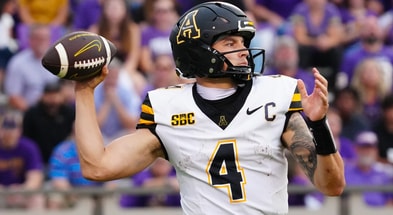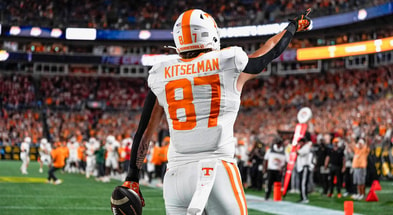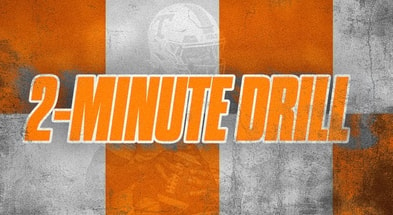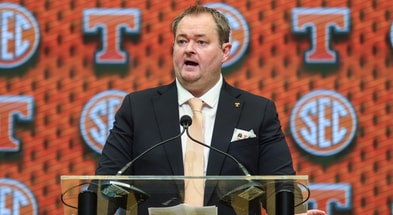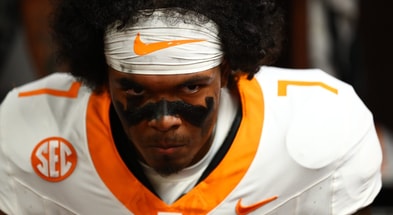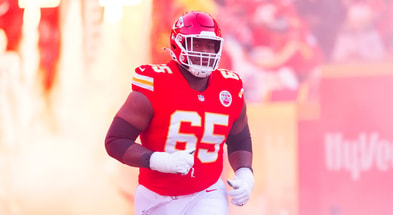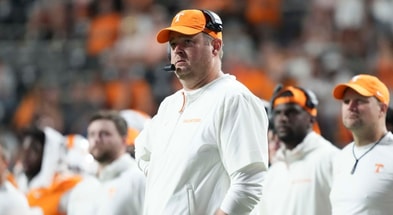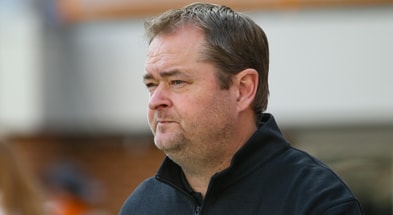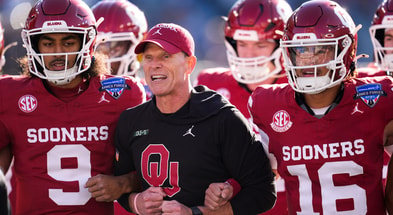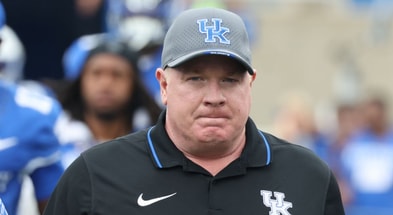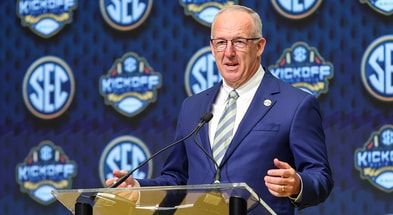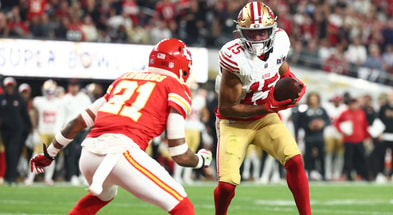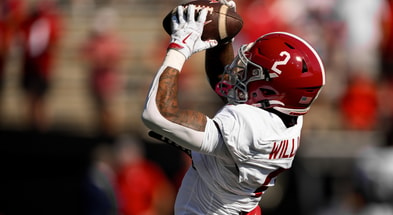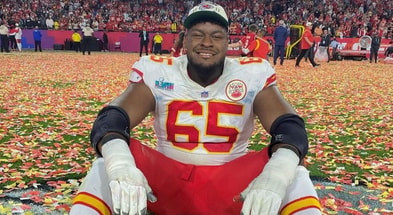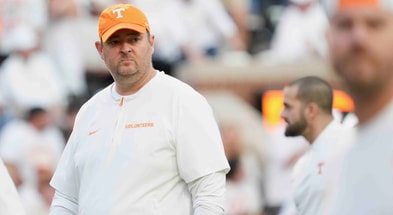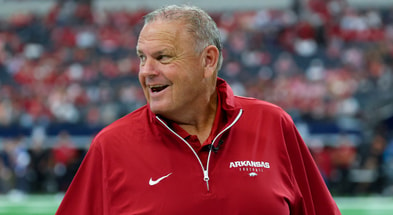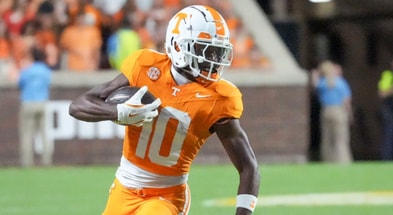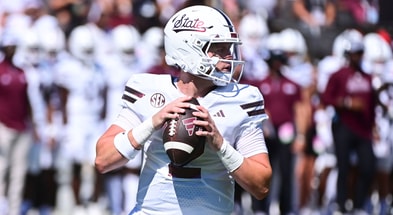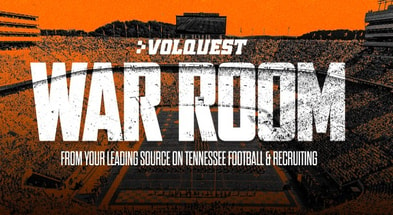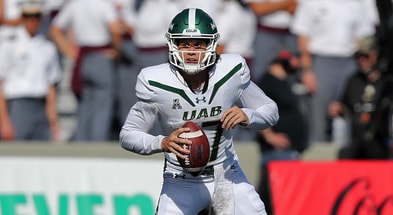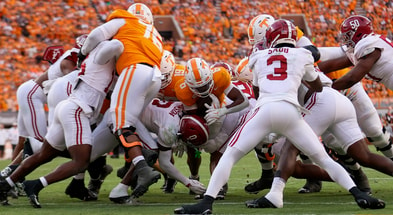Tennessee vs. Georgia 1992: Making a statement as a star was born
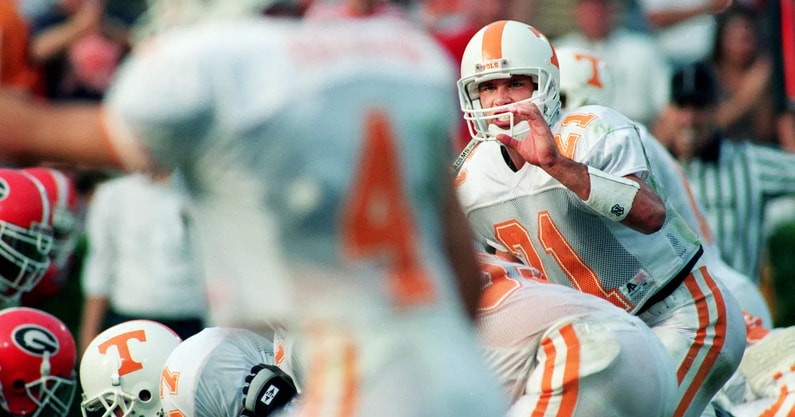
Editor’s Note — In doing some summertime work for the 2025 football season, I started looking at the last time Tennessee played Georgia in Week 2. It’s happened four times as the SEC moved to divisional play and the Vols went 4-0 in those Week 2 matchups with the ‘Dawgs. It was the 1992 game that got my attention. I have always been fascinated by Tennessee’s 34-31 win in Athens, so I decided to do a deep dive.
Over the three seasons leading up to the 1992 campaign, Tennessee won 29 games, including two SEC Championships. The ‘92 season, however, presented some different challenges for the Volunteers.
Arkansas and South Carolina joined the SEC in 1992, expanding the league to 12 teams. That expansion meant the SEC would go to eight conference games and would divide to divisions, the SEC East and SEC West. It also meant that Georgia and Florida would become regular Tennessee Football opponents, something no school had been in the then-59-year history of the SEC.
For example, entering their 1992 meeting, Tennessee had faced Georgia just 21 times.
Another quirk to the new SEC in 1992 … Tennessee would open SEC play against Georgia and Florida. This was done — if you believe the narrative of the day — so that Tennessee could still face Alabama on the Third Saturday in October and Kentucky and Vanderbilt at the end of the season.
Tennessee would play Georgia and Florida in Weeks 2 and 3 of the season from 1992-1995. Finally, Tennessee-Georgia would move to mid-October in 1996.
But back to 1992 … new SEC, conference divisions, eight league games and new league schedules.
Now, let’s move to September 12, 1992. Tennessee at Georgia and another pair of significant facts.
Johnny Majors was Tennessee’s head coach, but he wouldn’t be between the hedges in Athens. Majors had open heart surgery on August 25, 1992, a note so significant that the New York Times sports section wrote it the following day:
Johnny Majors, the football coach at the University of Tennessee for the last 15 years, underwent three and a half hours of open heart surgery yesterday morning, less than two weeks before the team opens its season.
Dr. Charles Mercer, the medical director at the University of Tennessee Medical Center, said the 57-year-old Majors had come through the operation in good condition and would likely be hospitalized for 7 to 10 days.
When asked if Majors might miss the entire season, Mercer replied: “Gosh, I don’t have any say in that. Right now, we are just trying to get the guy through his first day after surgery.”
Majors underwent an angioplasty in May. Since then, he had been on a regimen designed to strengthen his heart. But after a checkup Monday, doctors decided to proceed with the surgery.
The university said the assistant head coach, Phillip Fulmer, will be in charge of the football program during Majors’s recovery.
After a 38-3 opening win over Southwestern Louisiana, the 42-year-old Fulmer was going to take his underdog Vols to Sanford Stadium as an interim coach with a huge opportunity.
“It was Coach Majors’s team,” Fulmer said while looking back with Volquest in recent weeks. “It was totally his team and I said that in the interviews and everything. It was his team, but we had a job to do and I — it wasn’t uncomfortable at all.”
While it was certainly Johnny Majors’ team, the program and a young team were looking for leadership. It had been a very difficult offseason for Tennessee. Beloved head trainer and voice of reason Tim Kerin passed away suddenly at 44. Kerin’s death was crushing blow to everyone involved with Tennessee Football.
“That was devastating,” David Cutcliffe told Volquest. “Tim did everything. He was not just the athletic trainer. Tim picked people up when they were down. Tim ran our offseason conditioning program. Tim did all of the travel. Tim did everything. That was like losing four or five people. And we all loved Tim and his wife Zibbie. Athletic departments were a lot smaller then. The better part of any sports are the relationships and they were powerful at that point.”
Three weeks later, Majors was also suddenly not with his team. It was Fulmer, who rallied the Vols through his approach to the entire situation.
“There were two different relationships and philosophies,” senior offensive tackle Mike Stowell said. “Coach Majors was the head coach and this is how it’s done. There’s a hierarchy that you follow. Coach Fulmer was like, I’m just an offensive coordinator, I’m going to be the interim coach. We are all on the same page. We are all equal. I don’t care what the other coaches are doing, we are all on the same page and we are going to figure this out together.
“I think it was that mentality that this is a collective team effort. I think he played that exceptionally well that everyone just believed that we are all just one big team and everyone’s responsibility is equally the same no matter what.”
So, let’s fully dive into this 1992 classic.
Tennessee entered the game as a double-digit underdog. Georgia featured Eric Zeier at quarterback, Andre Hastings at wide receiver, Garrison Hearst at running back and a massive group of future NFL players on their roster. On paper, Ray Goff had the SEC’s most talented team, a club thought to be a true national championship contender.
The 1992 Vols had lost nine players to the NFL Draft, including first-rounders in Dale Carter and Chris Mims, and two more player who should have been first-round picks but went in Round 2 in Carl Pickens and Chuck Smith.
This Tennessee-Georgia game looked like a mismatch — experience versus youth. Stowell believes his team’s youth and inexperience actually played a key role in the Vols’ ability to manage opening SEC play on the road.
“We were very young,” Stowell said. “There was like two returning starters on offense. The defense was young. I was moved from guard to tackle. We were still trying to figure a lot of stuff out. This was coach Fulmer’s first game on the road as interim head coach. We lost Tim Kerin five or six weeks earlier.
“There were a lot of things that were stacked against us. I think the great thing is that we were so young, we probably didn’t know better. We were just too young to think ‘Hey, we are an underdog going to Georgia.’ We were so young that we didn’t know what we didn’t know.”
The same can be said of sophomore quarterback Heath Shuler.
Becoming Heath Shuler
Bryson City, North Carolina quarterback Heath Shuler was the first “mainstream recruit” for most Tennessee fans. Even if you didn’t follow high school football recruiting, you followed the Shuler recruitment. Where Shuler went to college was a major topic on WIVK’s SportsTalk with Mike Keith every day.
Keith drove over the mountain to Bryson City in the snow and to cover Shuler’s commitment ceremony as the Vols beat out Alabama and North Carolina in a heated battle.
Shuler was the highest-rated quarterback to sign at Tennessee in 1991. His ascension to replace the departed Andy Kelly, however, was complicated by a strong August run by Oak Ridge native Jerry Colquitt. Shuler narrowly won the quarterback battle with Colquitt for the job heading into the 1992 campaign. Or did he?
In Tennessee’s 1992 season-opening win over Louisiana Tech, it was Colquitt who threw more passes than Shuler. The two were both playing in a rotation heading into Athens. In fact, Colquitt played two series in the first half in the win at Georgia.
“It was difficult,” Cutcliffe said, “and I think sometimes without a preseason schedule like you get in the NFL, it takes a little while to know what games are going to be like with them. One of the things you can’t afford to do in college football is to hit your quarterback in August in practice scrimmages or otherwise.
“We couldn’t come to a conclusion until we got into games, and particularly that game, is where Heath could create things that Jerry couldn’t create. There were more different ways to win with Heath, with all due respect to Jerry. That’s what hit me. Georgia’s offense was crazy good. We were in a mode where we had to make plays if we were going to win. We weren’t going to dominate the line of scrimmage. They were good across the board. That’s where it came to between Jerry and Heath.”
But in the final 30 minutes of the game, things changed as Heath Shuler became Heath Shuler.
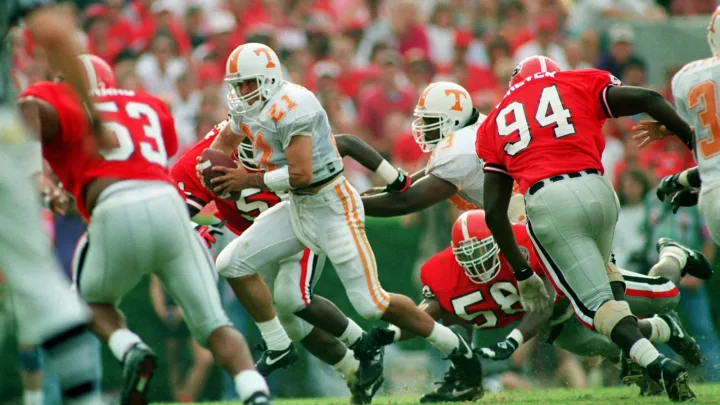
“If there was one moment in my football career that I felt that it changed kind of the direction of my life,” Shuler said, “it was without a doubt that Georgia game my sophomore year. That totally changed what I thought the expectations of not only my personal journey in the game, but also what our journey was getting ready to be as a Tennessee Football team.
“That really changed because you look around and, yeah, we had some older guys on the offensive line, but you kind of really looked in that backfield. And even with Craig Faulkner being a redshirt sophomore at that time, and you had two sophomore running backs, a sophomore quarterback, you kind of started looking at that, wow, we’ve got the formula here to be something real special.”
Added Cutcliffe, “Heath is a tough guy — there were some tough runs. There was no diving on the ground or sliding. I think we saw the best of what was to come from Heath Shuler that day.”
Ironically, Shuler gives plenty of credit to Colquitt for not just pushing him, but for helping him through the competition.
“I remember sitting in our room at night studying film or studying the playbook and Jerry would give me recommendations” Shuler said. “He would give me some suggestions and he would kind of like — he was almost coaching me. I’m like, why is this guy doing this? Why is he doing it? And years later, I went back to Jerry, I said, hey, I just want to tell you thanks for being the best teammate I’ve ever had in my life. Because Jerry was that guy that would be on the sidelines with me.
“Yes, Coach Cutcliffe was up in the box, but Jerry was that guy. Jerry had a lot to do with my success because he pushed me as a quarterback, but he also gave me those finer details that only a quarterback could actually see at that moment. And so, I owe a lot to Jerry Colquitt in that game itself.”
Shuler at Georgia was 4-for-5 for 61 yards in the first half and had nine yards on four runs. In the second half, the future Heisman Trophy runner-up introduced his game to the world with 93 yards passing on 8 of 17 attempts while leading the team on the ground with 72 yards and two touchdowns on 15 carries.
“We knew we had to have some plays from him to win,” Cutcliffe said. “Down on the goal line, you run a quarterback counter to win the game. Who can do that? I was committed to Heath at that point.”
Top 10
- 1New
SEC Football
Preseason rankings updated
- 2
Kirby Smart
Doesn't mince words on CFP
- 3
Arch Manning
Reacts to Steve Spurrier comment
- 4Trending
Steve Sarkisian
Introduced to 'Aggie War Hymn'
- 5Hot
Top 50 hardest schedules
Toughest slates revealed
Get the Daily On3 Newsletter in your inbox every morning
By clicking "Subscribe to Newsletter", I agree to On3's Privacy Notice, Terms, and use of my personal information described therein.
Added Fulmer, “To win the game, we were going to have to make some plays. And he made them with his arm and he made them with his feet. He matured as a field general during that game. I don’t think he has ever been afraid of anything. But he showed his wares, being able to get the scrambles and make first downs. He was able keep the formations and all those kind of things. It was enough, it wasn’t too much.”
It wasn’t perfect, but even when things were wrong, Shuler seemed to be able to make it right.
“Most of it was within the structure of the offense,” Cutcliffe said. “I do remember we had a busted play where Heath turned the wrong way then he turned it into a 10-11 yard gain.
“On a toss, he went the wrong way and only Heath could recover from that,” Cutcliffe added with a laugh.
For Shuler, it was more reverting back to his high school days as the game progressed.
“I think I was too naive to understand that it really is not supposed to work that way,” Shuler said. “But this is really no different than high school, the way I was thinking of it. And yeah, they’re a little bit bigger and they’re faster and they’re stronger, but hey, it’s ok. I’m going to treat it just like it was, go out, play, have fun and enjoy yourself. And, I think that was kind of the attitude that I had going into those games.”
“He would roll out and tuck the ball and drop his head and run,” Stowell said. “He was fearless. I do remember a story, it was the last touchdown we scored to take the lead. We were on the bus leaving Athens, we were kind of reliving things. That was an option down the line and pitch it. He just dropped his head and ducked in and scored.
“I remember, I was pulling people off Heath and I look down, Heath is holding the ball and his eyes were basically rolled up because he got clobbered — but he got in. That game and what he did showed and set what we were going to be. He really took over.”
Shuler closed the third quarter with a 44-yard run that set him up for the first of his two touchdowns on option plays in red zone work that Georgia clearly had not prepped for.
“No one was ready for the option game inside the red zone,” Shuler recalled. “They had not prepared for that. So that was a big key to our success. I think that long run kind of showed me, look, I’m just as fast, if not faster than any of these other guys. And so, it’s not much different than I did in high school.”
While Shuler’s legs were vital in the second half, it was his fourth and 14 completion to Ronald Davis on the game winning drive — that was the quarterbacks first career defining moment. A tense moment that Shuler created some humor in.
“David (Cutcliffe) and I are talking about what we wanted to do,” Fulmer recalled. “We pretty much knew. And Heath is standing there with me. And I looked him right in the eye and he actually said to me. He said, ‘coach, we got this.’ And he patted me on the ass. He kind of started off to the huddle and I said, ‘David, did you see him just pat me on the ass on national television?’ It was a funny moment. It really was. It’s a very serious moment. But it was like, did he just do that? Then he sticks it right on Ronald Davis.”
“That was somewhat typical of Heath,” Cutcliffe chuckled. “He never lacked for confidence. He walked into the United States House of Representatives and probably patted someone on the rear and said we got this.”
“It was 62 Mac,” Shuler recited the play nearly 33 years later. “It was the play that was called and we had not performed that very well at practice. I would not say that was the best play that we had ran in practice. However, it was certainly the right call that needed to be made. And I’ll never forget, he said 62 Meyer. And I’m like, all right, hey, we got this.”
Shuler did have it and everyone saw it that afternoon between the hedges and everyone recognized it. From Brent Musburger and Dick Vermeil, who called the game, to fans and support staff members, including head equipment veteran Roger Frazier, who had a simple postgame message to the young quarterback.
“After the game, Frazier gave me the jersey,” Shuler said, “partly because it was too short, so they told me I couldn’t wear it no more. I’ll never forget, he gave me that jersey and said this will be one of many. Fraiz was another guy that you had to earn his respect and I knew at that moment I had earned it. He’s the guy that, you’re close to your coaches, but I mean, here’s your equipment guy. Everything that you ever needed in life, he was your life support.
“And so, I know this sounds kind of crazy, but when he tossed me that jersey, said ‘keep this.’ ‘This jersey is yours.’ ‘You deserved it tonight.’ I was like, that was the moment and then seeing my parents after the game, just for an instant, that’s all I got to see them. Just literally for seconds to give them a hug. And I could tell from my dad, he’d been around games for so many years. You know, all those years that I was like, my dad gets it. And to be able to see that look in his eyes, and he figured out, I know you can play in this game.”
Georgia gained 569 yards on this day, but Tennessee forced six turnovers. As importantly, the Big Orange had a special player wearing No. 21 at quarterback.
Everyone knew Heath Shuler could play the game and Tennessee built around it the following week.
In an amazing downpour that was largely centered over the Neyland Stadium area in the second half, Shuler and company manhandled the fourth-ranked Florida Gators 31-14. Shuler ran for 46 yards and two more scores while throwing the ball just nine times in the rout, capping off two weeks of what Mike Stowell calls the best of his football career.
“It’s at the top,” Stowell stated. “Everyone always talks about the Miracle at South Bend and that was a special game. Each game has special meaning, but those two weeks particularly what we did against Georgia on the road and then how he followed it up the week after that against Florida and just whipped them. We just dominated them. As an offensive lineman, you love to run the football and those two games were cool because we were just able to line up toe-to-toe and just flat out whip them. That’s some special football because that’s what Tennessee football was back in the day.”
“That game set a tone for a new wave of Tennessee Football, “Cutcliffe said. “It had been a long time since we had won between the hedges. That was a significant game in Phillip’s time and for just the program. I thought that game said a lot of things in just the way it went. It was about four or five games in one.”
The rest of the 1992 season took many more twists and turns, as it might have been the most eventful in Tennessee Football history. But for the time being, we will stop here.
When Tennessee and the Georgia Bulldogs play Saturday, September 13, it will be one day shy of exactly 33 years since an interim head coach and a future Heisman Trophy runner-up led a young football team on the road for one of Tennessee’s most surprising and enjoyable SEC wins.
That day, a statement was made and a star was born.
